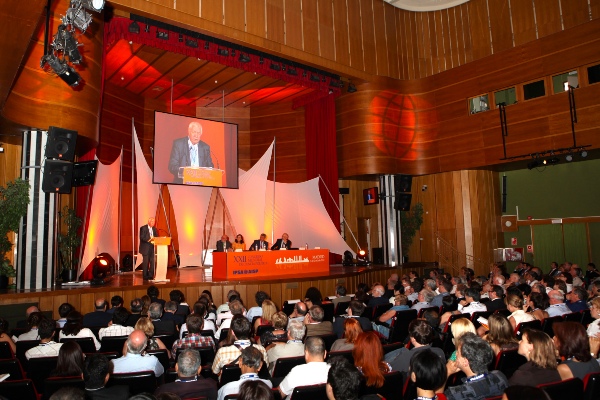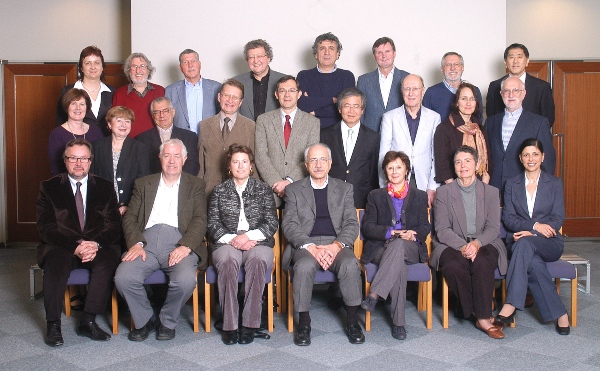2012
The 2012 World Congress of Political Science in Madrid, Spain, was at the time the most-attended congress in the history of IPSA, drawing a record 3,081 participants. Participants from 83 countries came to share their ideas and discuss the event’s main theme, Reshaping Power, Shifting Boundaries.
A total of 5,254 paper proposals were submitted and close to 3,000 abstracts were accepted for the final congress program. Over the five days spanning the congress, some 609 panels and 2,285 papers were presented. Research committees played an important role in the World Congress program, offering 377 cohesive panels on their respective areas of research, 24 of which were jointly organized by RCs with shared interests.
The Congress Program was prepared by Wyn Grant. Pablo Oñate, Secretary-General of the Spanish Political Science Association (2005-2013), chaired the Local Organizing Committee.
Shortening the IPSA World Congress of Political Science Cycle
Following a decision made at the IPSA Executive Committee’s 106th meeting in Madrid from 29-30 October 2010, IPSA decided to hold its World Congresses every two years instead of the three-year tradition. The EC also selected Montréal (Canada) and Istanbul (Turkey) to host the 2014 and 2016 Congresses, respectively.
Several factors led to this historic decision. IPSA members had increasingly called on IPSA to expand its activities. In response to these requests, IPSA initially offered more interim conferences, such as the Montréal Conference (2008), the Luxemburg Conference (2010), and the IPSA-ECPR joint conference in São Paulo in February 2011. Additionally, the Executive Committee (EC) decided to evaluate the possibility of holding world congresses more frequently due to the exponential surge in participation and proposal quality. The overwhelming success of IPSA's world congresses in Fukuoka (2006) and Santiago (2009), as well as the fact that IPSA has had a permanent Secretariat since 2006, were significant factors in the EC's decision.
Photo: The 108th IPSA Executive Committee meeting in Tokyo in April 2012
First row (left to right): Irmina Matonyte (Lithuania), Mark Kesselman (Editor of the International Political Science Review, United States), Dirk Berg-Schlosser (Summer School Coordinator, Germany), Werner J. Patzelt (Germany), Giliberto Capano (Italy), Leslie Pal (Canada), Francisco Jose Llera (Spain), Aiji Tanaka (Japan).
Second row (left to right): Yvonne Galligan (Editor of the International Political Science Review, Ireland), Teresa Sasinska-Klas (Poland), Mikhail Ilyin (Russia), Jose Alvaro Moises (Brazil), Vincent Hoffmann-Martinot (France), Hyug Baeg Im (South Korea), Rainer Eisfeld (RC Liaison Representative, Germany), Kia Lindroos (Finland), Paul Godt (Editor of the International Political Science Abstracts).
Sitting (left to right): Guy Lachapelle (Secretary-General), Wyn Grant (Vice President Africa and Europe, Program Chair XXII World Congress, United Kingdom), Helen V. Milner (First Vice-President, United States), Leonardo Morlino (President, Italy), Lourdes Sola (Past President, Brazil), Marian Sawer (Vice-President Asia and Oceania, Australia), Andrea Cestaro (IPSA Executive Director).
Absent: Mauro Calise (Editor of the IPSA Portal, Italy), Serge Hurtig (Co-Editor of the International Political Science Abstracts, France), Şule Kut (Turkey).













